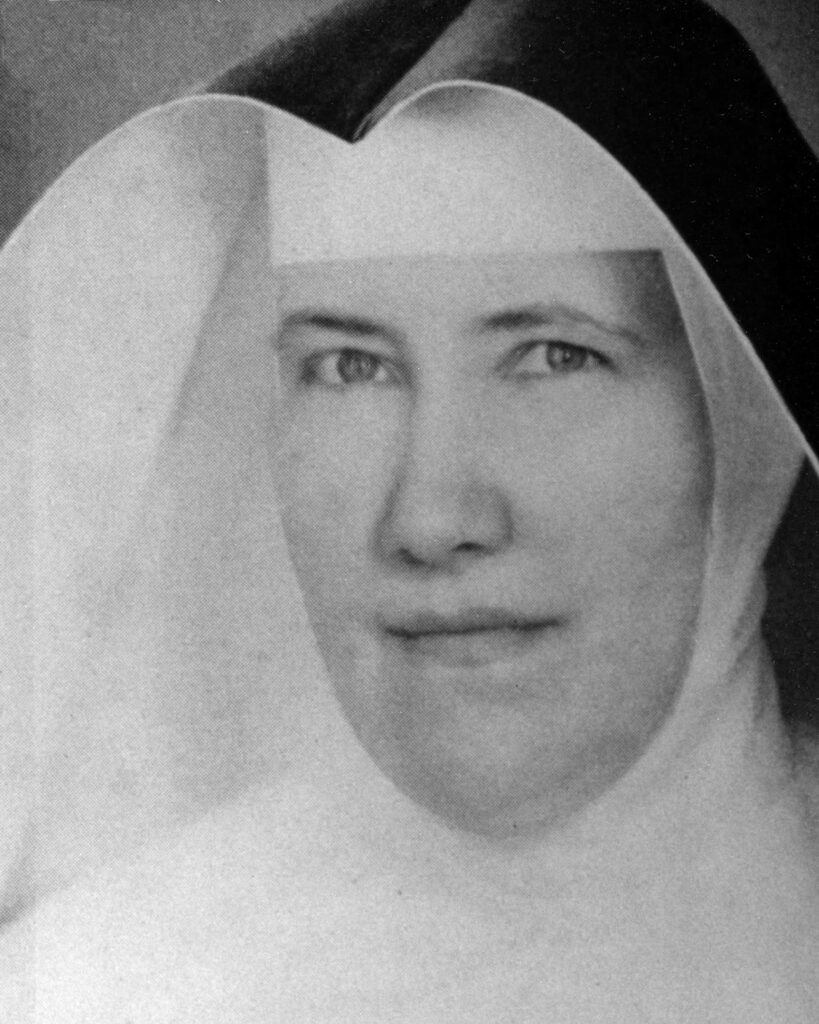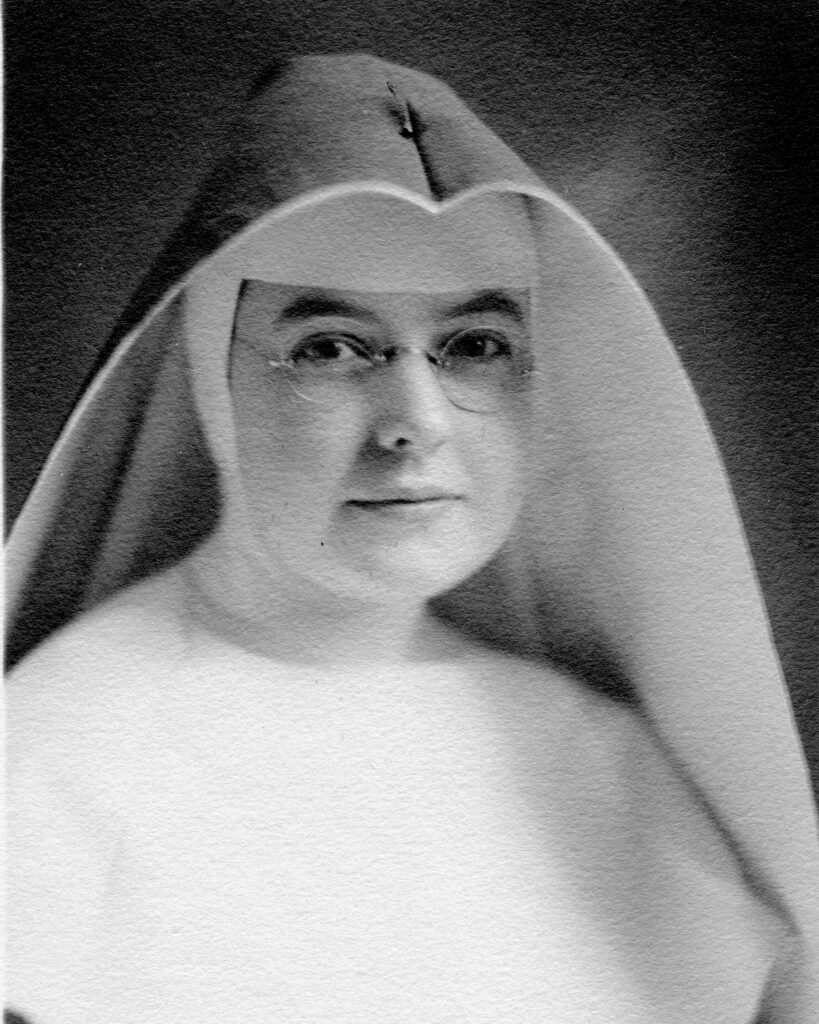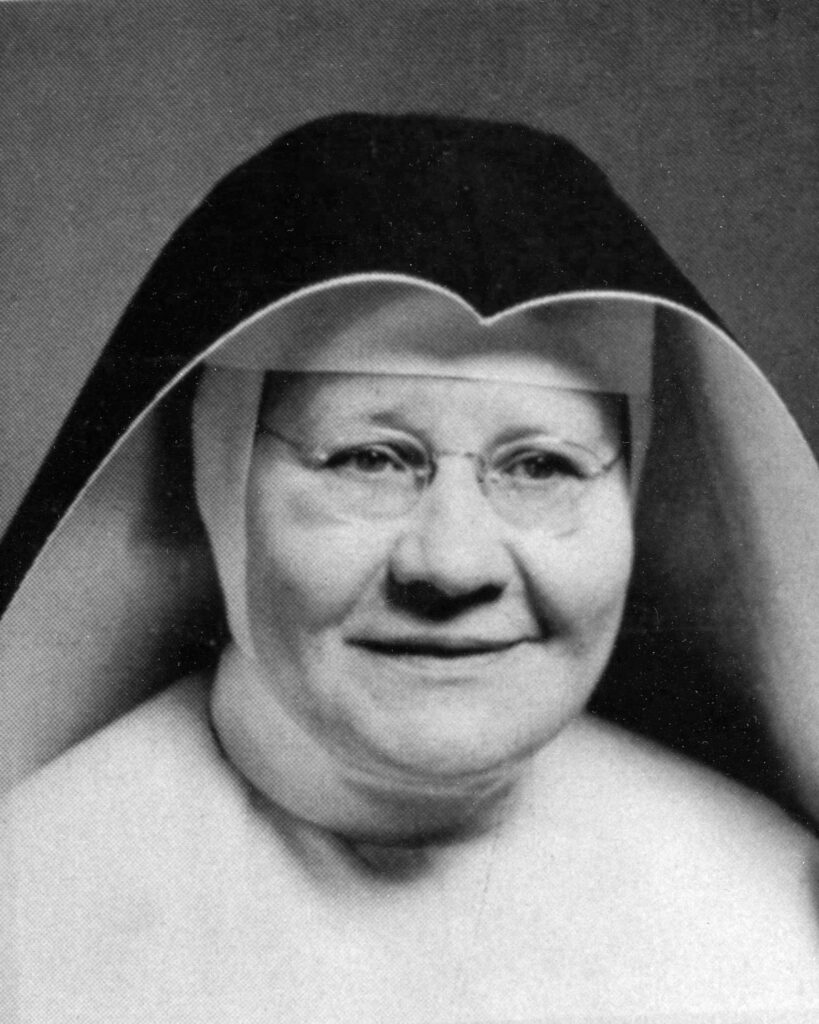The following article appeared in the Centennial Newsletter on March 31st, 2025.
Presidential Ponderings – Centennial Newsletter
In 1947 Albertus’ student population reached a new high of 309 students. The Silver Horn, an Albertus Magnus College student-produced campus newspaper, debuted and continued to run for 48 years. The world saw the rise of the Cold War and the formation of NATO from 1947 to 1949. In 1947 the United States announced the discovery of plutonium fission, suitable for nuclear power generation. From 1947 to 1949, Sister Irmina Longstreth, OP took on the role of Albertus Magnus College President, although she was first and foremost a Chemistry teacher. What an exciting time to be a Chemistry teacher!
Sister Irmina believed in the college and the quality education Albertus provided to the students. On February 13, 1948, she wrote a letter to Porter Sargent, a prominent critic of the American educational scene. “As a member of a religious organization which for years has saved the taxpayers of America huge sums of money by its teaching in parochial and private grade schools, high schools, and colleges, (And we do teach our students to think ! Some of them are holding quite important positions now.) I disagree heartily with some of your statements.” I have to wonder what Mr. Porter said to invoke such fervent words from our sixth college president.
Sister Irmina came to Albertus in 1926 to help her sisters establish this new college for women. She stayed for 43 years. In 1973 Sister Irmina received an honorary doctorate degree from Albertus Magnus College. Elizabeth C. Patterson, a chemistry professor at Albertus Magnus College and eulogist at Sister Irmina’s funeral, said that Sister Irmina was, “The head and tail of the chemistry department, turning her hand to whatever task, great or small, that had to be done and doing it well.” Sister Irmina died on April 4, 1986 in Columbus, Ohio.
Sister Coralita Cullinan served as Albertus Magnus College’s seventh president from 1949 until 1953. She established a scholarship program. She expanded the college’s physical plant. She increased the number of the college’s liberal arts courses. She also taught a class in educational psychology during her first year as president, mainly to become better acquainted with the students. Rumor has it that she was well-liked by the students.
There must have been some controversy surrounding the bestowal of honorary degrees at Albertus Magnus College, even though colleges and universities have bestowed honorary degrees since the 1400’s. The first Albertus Honorary degree was awarded in 1936. Fourteen years later, two more were presented at commencement in 1950, one to Mr. Christopher Wyatt and the other to Ms. Esther Budd. Ms. Budd was a nurse and a member of the Class of 1928. She achieved the rank of Lieutenant Colonel while serving in World War II and later became head nurse at Yale Hospital.
It appears that Sister Coralita and the college came under some criticism over honorary degrees. According to a July 30, 1951 letter written from Sister Coralita to Sister Callista, Sister Coralita wrote, “Don’t worry about the criticism of the conferring of honorary degrees on laywomen. Whoever made it, does not understand the significance of an honorary degree.”
The way that Sister Coralita penned this letter, using the specific words, “on laywomen” leads me to think that it is only the woman’s, Ms. Budd’s degree, which is being questioned. I speculate that there was no objection to the honorary degree given to the man, Mr. Wyatt, about whom we know very little.
Sister Lucia Deku faced a unique situation when she became the eighth president of Albertus Magnus College in 1953, as she faced the rise of television which was invented in 1927. The first broadcast TV program aired in 1939, and Connecticut’s first television station WNHC, today’s WTNH Channel 8, went on the air for the first time in 1948. Television viewers outnumbered radio listeners for the first time in 1953, as commercially produced television sets became a staple in many American homes. 1953 was also the year students residing in Mohun Hall acquired a television set. Study hall was now competing with newly airing episodes of I Love Lucy. Students continued to study, but the timing just had to change to accommodate new schedules for modern college students. The students would have to wait until the 1970’s for the first video tape recorder to save and watch I Love Lucy at a later time.
In my experience the Dominican Sisters today are resourceful women who are proficient in assessing the signs and needs of the times to provide necessary solutions. TV time seems such a small concession but I wonder how that really played out in 1953.
Contributed by:
Sr. Paula Danforth



